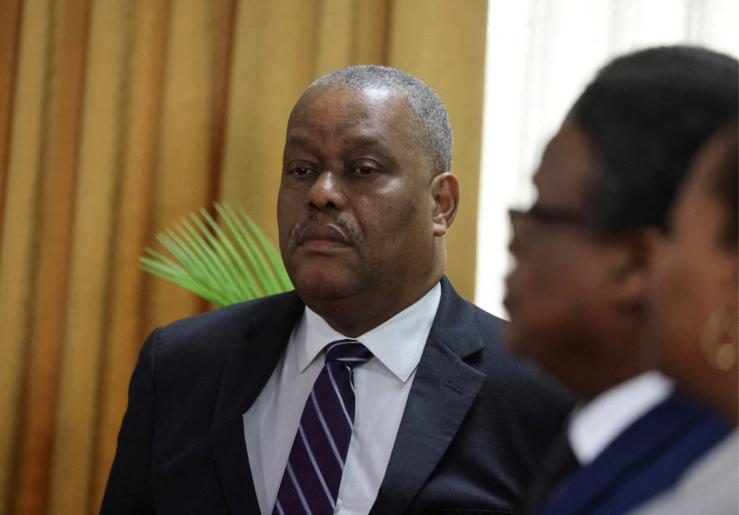The News
Haiti’s transitional council announced it has formed a new government and appointed cabinet ministers as the country struggles to restore political normalcy and tackle spiraling gang violence amid an ongoing humanitarian crisis.
The ministers replaced all those who served under the former prime minister, Ariel Henry; he was booted from the role by gangs. Haiti’s interim Prime Minister Gary Conille, who briefly led Haiti over a decade ago and was appointed in May, will now also be the country’s interior minister, overseeing the Haitian National Police.
Gang violence killed more than 1,500 people and injured hundreds more in the first three months of 2024, according to the United Nations.
SIGNALS
Haiti needs credible elections
There’s broad consensus that Haiti needs fresh elections to restore political stability, but making them credible is a challenge, a Haiti expert argued in Foreign Policy, and will require careful organization and buy-in from Haitians. “The international community has too often seen elections in Haiti or other conflict zones as a simple box to check before proclaiming that democracy has been restored,” the expert said. Before a vote, Haiti will need to conduct what will be its first census in 20 years to work out who can vote, for example, and create electoral institutions, including a permanent electoral council, he added.
Questions remain regarding UN-backed security support mission
A UN-backed Multinational Security Support Mission, led by Kenya and largely funded by the US, is set to deploy to Haiti within the next few weeks. But many questions remain unanswered regarding its purpose and accountability mechanisms, Human Rights Watch has said, while Amnesty International has urged for more transparency. Many Haitians are wary of foreign intervention, especially militarized ones, one Haitian columnist argued in Al Jazeera. “Haitians are doubtful that another foreign military intervention would solve the systemic problems in the country,” like poverty and healthcare shortages, she wrote.
There may be no good alternative to foreign intervention
The Caribbean Community group, a regional organization of Caribbean nations, backed the formation of Haiti’s transitional council — and made sure members supported the UN-backed security mission, leaving little room for push back, the executive director of the National Human Rights Defense Network in Haiti told The New Humanitarian. But some Haitians see no alternative method to tackling rampant gang violence in the short term, potentially setting up future dilemmas: “[W]e ask foreigners to come, but we also [don’t want them] to lead us towards a path we don’t wish to take,” one Haitian politician said. The US and its allies have an opportunity to “play midwife” by supporting Haitian leaders to build a new future, one New York Times columnist wrote.



